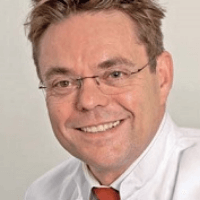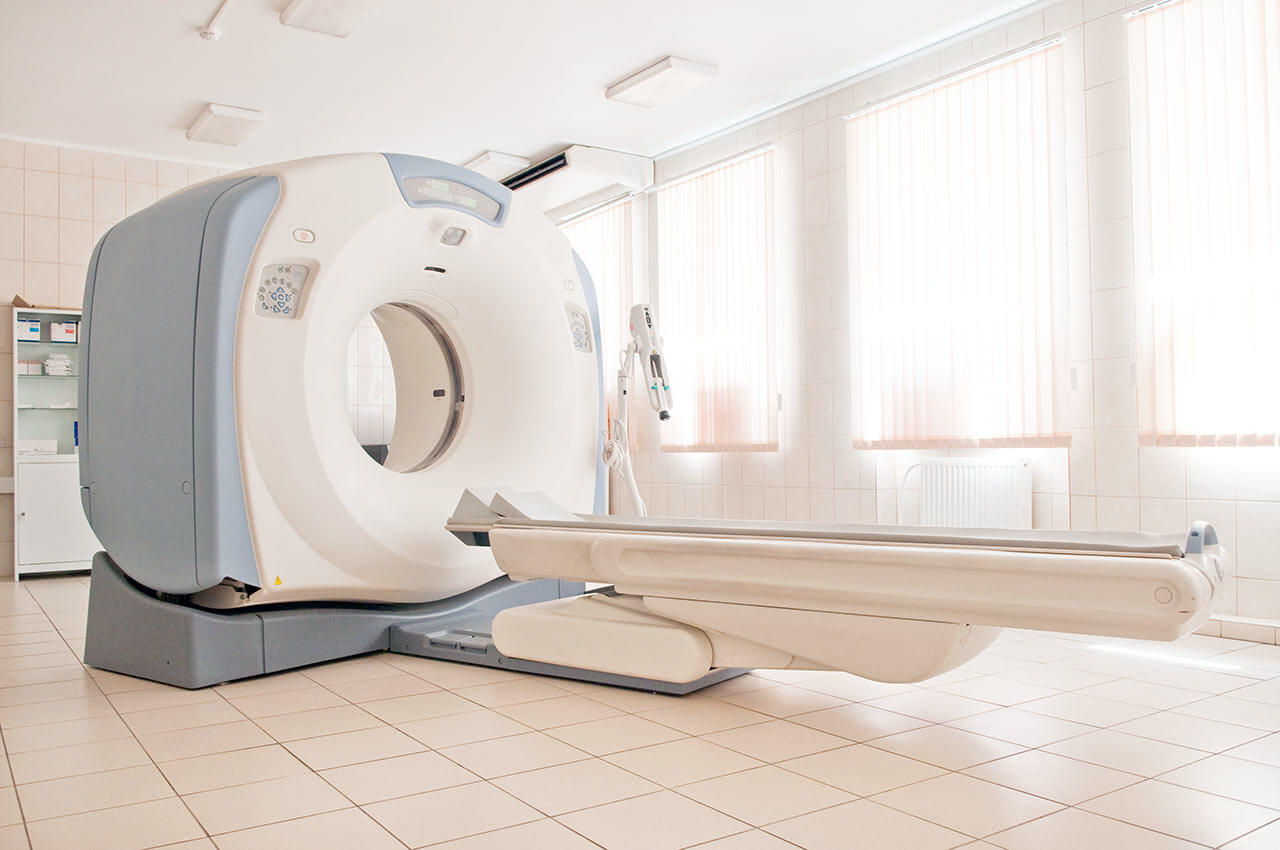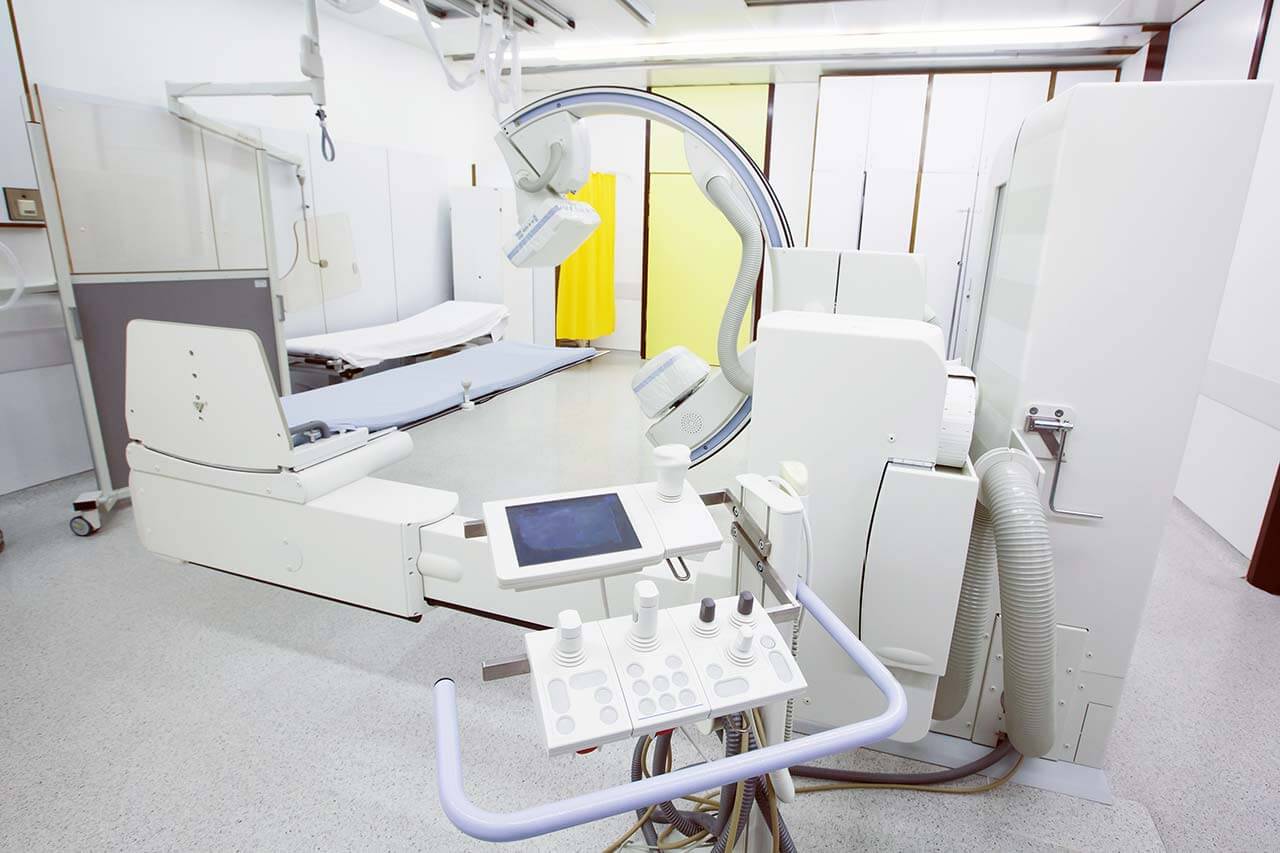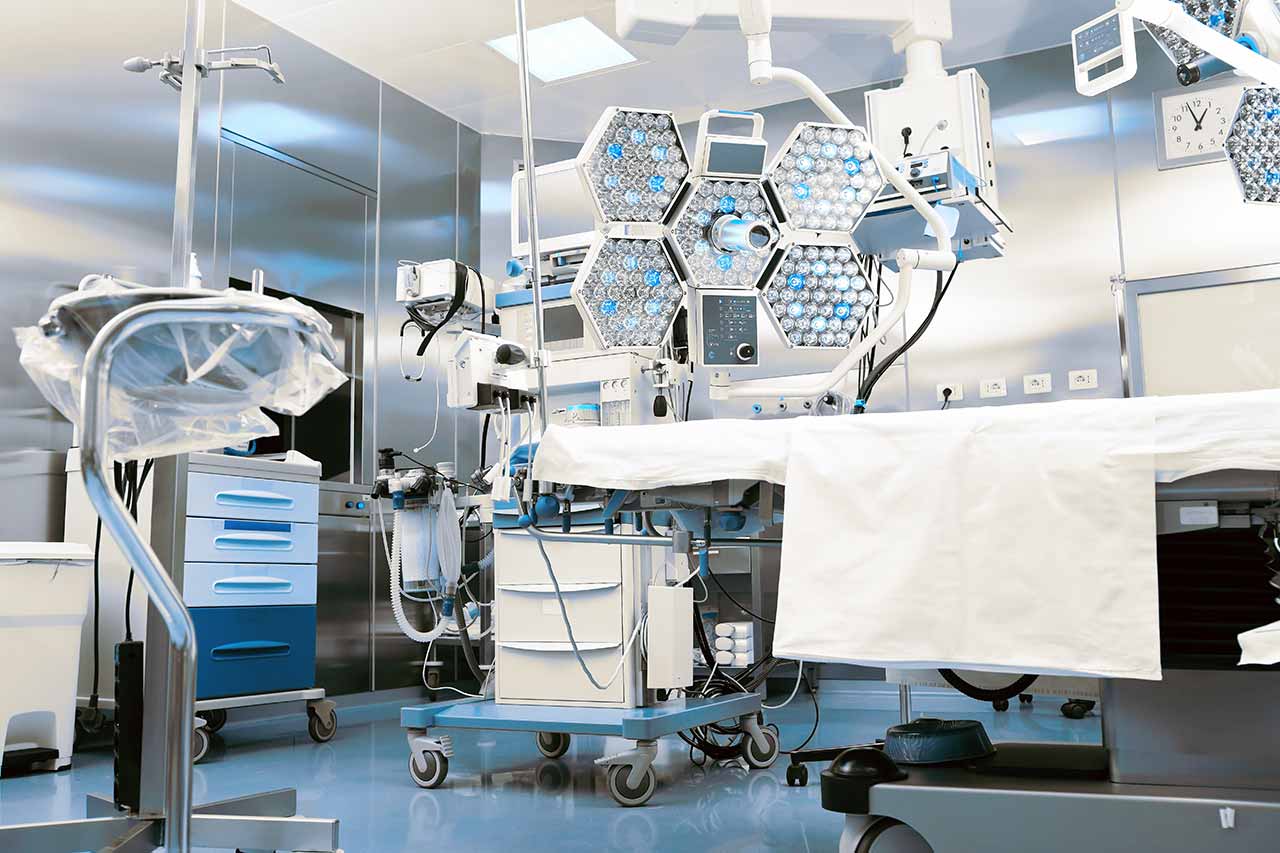
The program includes:
- Initial presentation in the clinic
- clinical history taking
- review of medical records
- physical examination
- laboratory tests:
- complete blood count
- biochemical analysis of blood
- inflammation indicators (CRP, ESR)
- TSH-basal, fT3, fT4
- indicators of blood coagulation
- individual plan of the chemotherapy
- symptomatic treatment
- the cost of essential medicines and materials
- nursing services
- control examinations
- consultations of related specialists
- recommendations for futher treatment
How program is carried out
During the first visit, the doctor will conduct a clinical examination and go through the results of previous laboratory tests and instrumental examinations. After that, you will undergo an additional examination, including laboratory assessment of liver and kidney function, ultrasound scan. Based on the received results, the doctor will elaborate the chemotherapy regimen. If necessary, related medical specialists will be involved in the elaboration of a treatment regimen (tumor board).
Chemotherapy is carried out as the day hospital procedure, without mandatory admission to the hospital. After the placement of a venous catheter, you will stay in a comfortable ward. An infusion system will be connected to the catheter, through which the required drug or a drug combination will be administered. All drugs are administered by intravenous drip, slowly, so the total duration of the infusion can be up to several hours. All this time, doctors and nurses will monitor your health condition closely.
After the course of chemotherapy, you will stay under medical supervision in the ward for a few more hours. If your general condition is good, your doctor will allow you to leave the hospital. You will receive the medical report with detailed recommendations regarding further treatment. In the future, you will be able to have a distant consultation with your attending physician and schedule the next course of chemotherapy, if necessary.
Required documents
- Medical records
- MRI/CT scan (not older than 3 months)
- Biopsy results (if available)
Service
You may also book:
 BookingHealth Price from:
BookingHealth Price from:
About the department
The Department of Hematology and Oncology at the University Hospital Freiburg offers the full range of diagnostics and treatment of blood diseases, coagulation disorders, oncological diseases and related pathological conditions. The treatment is provided both on an outpatient and inpatient basis. The patient is offered a comprehensive treatment, including intensive care to eliminate side effects associated with the tumor and therapy, development of individual recommendations on nutrition, physiotherapeutic measures and psycho-oncological care. The department is headed by Prof. Dr. med. Justus Duyster.
The department specializes in the diagnostics and treatment of the following diseases:
- Malignant solid tumors
- Head and neck tumors
- Tumors of the digestive tract
- Lung cancer
- Breast cancer
- Cancer of the female genital organs (ovarian cancer, cervical cancer, endometrial cancer, other rare tumors in women, for example, vulvar and vaginal cancers)
- Urogenital tumors (kidney cancer, urinary tract tumors, testicular cancer, prostate cancer, penile cancer, extragonadal germ cell tumors)
- Thyroid cancer
- Endocrine tumors (neuroendocrine tumors, pheochromocytoma, adrenal cortical tumors, pituitary tumors)
- Tumors of the central nervous system (CNS)
- Sarcomas
- Skin tumors (malignant melanoma, squamous cell carcinoma, basal cell carcinoma, Merkel-cell carcinoma)
- Hematologic malignancies
- Leukemia
- Hodgkin's lymphoma
- Non-Hodgkin's lymphoma
- Multiple myeloma (plasmacytoma)
- Benign blood diseases
- Anemia
- Thrombocytopenia
- Thrombosis, embolism and thrombophilia
- Other diseases and pathological conditions
The range of diagnostic and therapeutic services of the department includes:
- Diagnostics
- General laboratory tests (for example, blood, urine, cerebrospinal fluid tests)
- Special blood tests (peripheral blood smear, bone marrow cytology, cytochemical studies)
- Blood cell testing
- Fluorescence in situ hybridization (FISH method)
- Ultrasound diagnostics
- Bone marrow puncture, lumbar puncture, paracentesis and pleural puncture
- Other diagnostic services
- Therapy
- Immunotherapy
- Chemotherapy
- Antihormone therapy (especially effective for breast cancer, prostate cancer, endometrial and ovarian cancer)
- Other treatments
- Supportive therapy
- Psycho-oncological care (for the patient and his/her relatives)
- Recommendations on nutrition
- Pain therapy
- Special physiotherapy for cancer patients
- Other medical services
Curriculum vitae
- 1981 - 1982 Public Service, Hanover Medical School.
- 1982 - 1989 Study of Medicine at the University of Freiburg.
- 02.1987 - 05.1987 Scholarship of the German Academic Exchange Service (DAAD), Vita Insani Clinic, Pematang Siantar, Sumatra.
- 1987 - 1990 Dissertation, Department of Cardiology, University Hospital Freiburg. Subject: "Long-term therapy with captopril in experimental heart failure".
Professional Experience
- 11.1989 - 04.1991 Internship, Institute of Biochemistry, Freiburg, within the framework of the joint research project "Tumor development and prevention of this process".
- 1991 Admission to medical practice.
- 05.1991 - 10.1992 Research Fellow, joint research project "Tumor development and prevention of this process" Institute of Biochemistry, Freiburg.
- 10.1992 - 10.1994 Research Fellow, University of California, San Diego, Department of Biology (under the guidance of Prof. Wang), scholarship of the German Cancer Society.
- 11.1994 - 01. 1996 Assistant Physician, Free University of Berlin, University Hospital Virchow, Max Delbrück Center for Molecular Medicine, Department of Oncology.
- 02.1996 - 01.1998 Medical Assistant, Department of Hematology and Oncology, University Hospital Ulm.
- 02.1998 Medical Assistant, Department of Hematology and Oncology, University Hospital Rechts der Isar Munich.
- 07.2001 Medical Specialist in Internal Medicine.
- 01.2002 Senior Physician in the Department of Hematology and Oncology, University Hospital Rechts der Isar Munich.
- 01.2003 Habilitation, Internal Medicine.
- 07.2005 Partial specialization in Hematology and Internal Oncology.
- 01.2003 - 08.2012 Leading Senior Physician and Deputy Head of the Department of Hematology and Oncology, University Hospital Rechts der Isar Munich.
- 12.2004 Acceptance of the proposal to fill the position of C3 Professor of Internal Medicine and Experimental Hematology, Technical University of Munich.
- 2007 Invitation to the position of W3 Professor of Hematology and Oncology, Otto von Guericke University of Magdeburg (refused).
- 09.2012 W3 Professor of the Department of Hematology and Oncology at the University Hospital Freiburg (successor to Prof. Mertelsmann).
Photo of the doctor: (с) Universitätsklinikum Freiburg
About hospital
The University Hospital Freiburg is famous for its rich history and is one of the oldest and most prestigious medical facilities in Germany (one of the three best medical institutions in the country). The hospital was based on the Faculty of Medicine of the Albert Ludwig University of Freiburg, which celebrated its 550th anniversary in 2007. It should be noted that the hospital is proud of its world-renowned specialists, many of whom during their work here have become Nobel laureates.
The medical facility represents all fields of modern medicine. It consists of 42 departments, 11 institutes and 10 interdisciplinary centers. The highly qualified doctors of the hospital deal with the treatment and rehabilitation of patients with both common and rare diseases. All departments and institutes of the hospital take an active part in fundamental researches of international scale, due to which patients have access to the very latest achievements of medicine, advanced diagnostic methods, state-of-the-art medical equipment and proven effective methods of therapy.
The hospital has a variety of medical achievements, for example, the world's first TIPS procedure, the first implantation of the Jarvik-2000 artificial heart in Europe, the first robotic-assisted surgery on the brain, and the first combined cardiopulmonary transplantation in the land of Baden-Württemberg. In 2004, the University Hospital Freiburg became the first German hospital, which performed kidney transplantation in the incompatibility of blood groups. At the moment, the hospital belongs to medical centers with the greatest experience in performing such an operation.
An interdisciplinary approach to treatment, highly qualified staff, as well as individual patient care and a pleasant environment are key to the hospital’s success.
Photo: (c) depositphotos
Accommodation in hospital
Patients rooms
The patients of the hospital are provided with comfortable rooms with a pleasant design, which create a conducive atmosphere for recovery. The standard furnishing of the patient room includes a telephone, a free radio and TV, a device for calling medical staff, lockers and a safe, an adjustable bed, a chair and a table. The pediatric departments are designed with play areas. The patient may be accommodated in a single or double enhanced-comfort room (for example, with an ensuite bathroom) at an additional cost.
Meals and Menus
The patients are offered good three meals a day with a large selection of dishes. The patients inform about their wishes to the menu in advance, and this information is transmitted to the kitchen. Throughout the day, patients may drink mineral water and tea, which can be found in the department on special tables. The bedridden patients receive drinks from the nursing staff. Other drinks may be purchased at the hospital’s cafeterias and bistro, where patients can come along with visitors.
If you do not eat some products due to intolerance or other personal reasons, please notify the nursing staff in advance, so that all your wishes to be taken into account when preparing the menu.
Further details
Standard rooms include:
Television
All patient rooms have a free radio and TV. The patients can also watch the hospital’s own 24-hour channel with a varied program and interesting information.
Accompanying person
At the availability of free beds, the accompanying person may be accommodated in the same room with the patient, at an additional cost. In addition, the hospital offers special accommodation conditions for patients requiring long-term hospitalization. Parents have at their disposal special apartments in the children's hospital.





